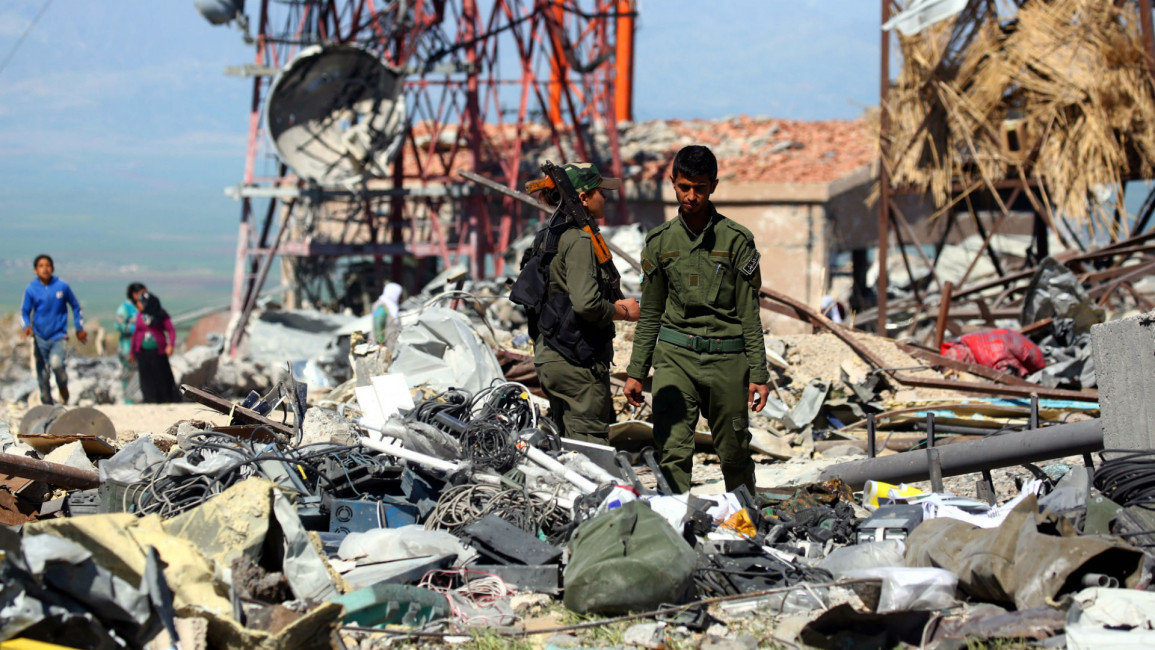US-backed forces demand Syria no-fly zone after Turkish airstrikes
The Syrian Democratic Forces [SDF] said on Tuesday that the Turkish strikes which targeted the Kurdish People's Protection Units [YPG] were an attempt to halt its advance on the IS de facto capital of Raqqa.
The toll in Tuesday's Turkish air raids on Kurdish positions in northeastern Syria rose to 28 killed, the Syrian Observatory for Human Rights said on Wednesday.
"The Turkish regime with this attack has tried to reduce the pressure our forces backed by the international coalition have exerted on IS by hampering the operation to liberate Raqqa," an SDF statement said.
"The regime has constantly harmed the relations with it neighbour with its countless violations against civilians and combatants in northern Syria," it added.
Ilham Ahmed, the co-chair of the political wing of the Syrian Democratic Forces, said that a no-fly zone must be set up to protect Kurdish forces from further Turkish attacks.
"The IS must take a clear stand against Turkish aggression," Ahmed told al-Monitor on Tuesday.
"We are fighting against [IS] with the US and Turkey is hitting us from behind, giving [IS] more oxygen... We demand that the US establish a no-fly zone to protect us against further aggression," she added.
US President Donald Trump has long called for "safe zones" to be established in northern Syria for millions of people displaced by the war to seek refuge within their own country.
The Turkish government had also pressed former US President Barack Obama, but without success, to create a no-fly zone in Syria on its border with Turkey.
Turkey, which backs Syrian rebel groups and which launched a ground operation in northern Syria last year, has vowed to continue acting against groups it links to the outlawed Kurdistan Workers' Party [PKK].
Turkey also killed six Kurdish peshmerga fighters in northern Iraq on Tuesday in an apparent accident.
The strikes have underlined the complexities of the battlefields in Iraq and Syria, where twin US-backed offensives are seeking to dislodge IS from its last major urban strongholds.
They could also exacerbate tensions between Ankara and its NATO ally Washington, which sees the Kurds as instrumental in the fight against IS.


![President Pezeshkian has denounced Israel's attacks on Lebanon [Getty]](/sites/default/files/styles/image_684x385/public/2173482924.jpeg?h=a5f2f23a&itok=q3evVtko)



 Follow the Middle East's top stories in English at The New Arab on Google News
Follow the Middle East's top stories in English at The New Arab on Google News


